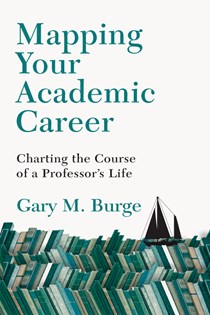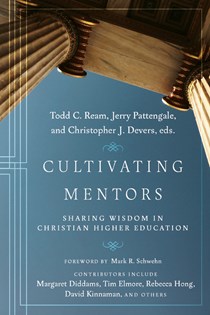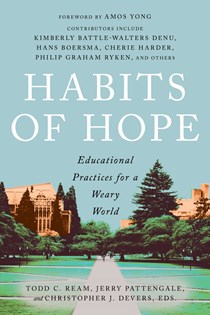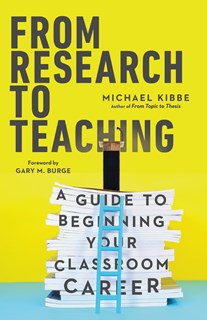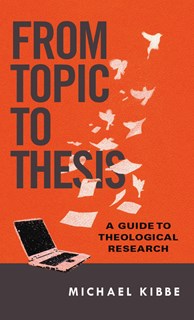6 Ways Academics Can Care for Each Other Well
By Dominick S. Hernández
IVP Academic had the privilege of sponsoring the Evangelical Theological Society lunch for ethnic-minority scholars at its annual meeting in San Antonio in November 2023. The scholars Sherelle Ducksworth and Dominick S. Hernández gave inspiring words to attendees, casting a vision of scholarship beholden first and foremost to the values of Jesus and his kingdom and not to academic elitism or individualism. We are honored to be able to share the remarks of both Ducksworth and Hernández from that event (read Ducksworth's presentation here). May you be encouraged by their hopeful vision of the academic life formed in Christ.
At this point in my life and in my career, it is tempting to think that my hard work alone is what got me here. I have earned a PhD at a research-based university, and I am currently working as a professor in a tenure-track position at a notable institution. Surely there were many late nights and early mornings throughout the years during which discipline and dedication were exerted. But I learned early on in my academic journey that hard work and dedication alone do not earn a PhD. They alone do not write books. They do not craft conference papers, plan lectures, or write syllabi. To accomplish these goals, effectively carry out other professorial tasks, and face other challenges associated with higher education, one needs a community; one needs a support network with whom there is affinity.
In short, we academics need each other.
In my early academic years, in which I struggled to get into a PhD program, labored to finish the dissertation, and considered the (lack of) potential job opportunities, there was a group of academics—peers and mentors—who lovingly came alongside my family and me to help us through those times. During my first few years of teaching and working through the higher education drama that facilitated my transition to three institutions in three different states in my first six years as a professor, this group of empathetic academics loved us and walked with us.
Based on these experiences, I have created a short list of how academics can love and care for other academics. This list is certainly not comprehensive, but it records some of the acts of kindness that my peers and colleagues have shown to me that have been encouraging, supportive to my development as an academic, and facilitatory to my investment in others. My goal in creating such a list is twofold:
- I never want to forget what it feels like to be in the various stages of the academic struggle: struggling to get into a PhD program, struggling to finish the dissertation, struggling to find the right job, struggling to find time for anything personal during those first few years of teaching. Sometimes human beings experience amnesia once they have achieved certain milestones, forgetting where they came from and what it took to accomplish these goals. The memory of these academic struggles must remain vivid in my mind so that I remember to be thankful for the support I have had and continue to have in my academic career, and so that I remember to pass on to others what was given to me.
- I hope that sharing how others have helped me will encourage fellow academics to love and encourage other academics in similar ways. This is particularly important within ethnic communities that are underrepresented in higher education. Many ethnic minorities in academia deal with similar issues that could potentially discourage us and thereby silence our much-needed voices. Discouragement is not unique to minorities in academia, but withdrawal because of despondency has a magnified effect on our communities because there are so few of us. I hope that this short list of encouragements to me will serve as a starting point for other academics to bless, inspire, and motivate our colleagues.
1. Academics Can Care About Other Academics More Personally Than Professionally
Academics default to talking to other academics about their projects. We do this so much that we sometimes identify ourselves, and others, with the quality of our work. However, some of the most life-giving conversations I've had have been with people who have quickly transitioned from the typical talk about dissertation topics and publishers to discussions related to personal goals. "Dominick, who do you want to be?" has always been a more stimulating question to me than "Dominick, what are you currently writing?" If personal conversations with our colleagues are less important to us than the simple work-related chit-chat concerning our projects, then our priorities are out of order as Christian academics. People are always more important than their projects. People are always more important than our projects. Let's encourage our colleagues by prioritizing them as people with whom we work in a demanding and sometimes unrewarding field.
2. Academics Can Exhort Other Academics to Contemplate What Is Truly Important
Many of us are familiar with a version of the insightful adage that says something like, "Those things that are urgent are usually not that important, and those things that are important are usually not that urgent." This proverb is particularly accurate in the life of an academic.
Academics tend to preoccupy their minds with all types of things that matter little in the grand scheme of things. Peer-reviewed articles are important, but not as important as our mental health. The next book contract is of consequence, but it is not as important as eating dinner with our families. Working toward tenure is great, but it is not worth sacrificing our service to the church and thereby an aspect of our spiritual health. I have been tremendously encouraged by other academics who have exhorted me to consider those things that are truly important and not just those things that feel urgent in academia. As academics we uniquely speak to our friends in academia from a place of deep affinity, and this permits us to empathize with the pressures of academia while urging our friends to focus on the right things.
3. Academics Can Refrain from Competing with Their Academic Friends
I have been tremendously encouraged by my friends in the academy who have helped me realize that everybody is on their own professional trajectory. As Christian academics in biblical and theological higher education, we are not in the business of competing with each other. This point is especially pertinent in this historical moment in biblical and theological education. Historical institutions are fighting for their survival.
Likewise, as minority people in academia we are fighting for our own survival in higher education. Some of our theological homes have been slow to accept those who are culturally different. We are sometimes viewed with suspicion as a result of our contextualized expressions of faith. This has made it hard to be accepted by theological institutions where we might fit theologically, but maybe not so much culturally. Once there, it is sometimes difficult to remain in these spaces since they frequently operate according to deeply embedded, culturally oriented systems that are often unspoken and sometimes linked to certain perceptions of the Christian faith. At times, the systemic issues in some of these institutions make it difficult for minority people to work in them without feeling complicit in the propagation of injustice.
Frequently, as minority people we experience burnout because of (unintentional) exploitation by our institutions. Not only do we do the job that we are contracted to perform, but we also become the default person for representation on all types of committees and the model for photo shoots demonstrating the institution's "diversity," among other responsibilities subtly added to our workloads. These "small" additions combined with the physical, emotional, and spiritual exhaustion resulting from the other unique pressures we feel (which, ironically, are regularly not understood, or are misunderstood, by those who recruited us with a desire to diversify the faculty) can sometimes make our jobs unbearable.
These are our realities. We are fighting for our academic lives.
Since we are fighting for survival, we must find ways to hold on to the lifesaver together. I am so grateful for friendships in academia—even in my small field—who refrain from competing with me. Rather, it has been invigorating when my academic friends have helped me to understand that there is never a shortage of good opportunities for those who can uniquely contribute to their field in higher education.
4. Academics Can Respond to Their Email—Especially When It Is Not Personally Beneficial
It is difficult and frustrating to keep up on the never-ending email stream that unmanageably flows into the inbox of an academic. This being the case, we tend to prioritize emails that come from our upline (i.e., our bosses), those that we must respond to (i.e., from colleagues), or those that are personally beneficial (e.g., invitations to speaking engagements). However, one of the greatest encouragements to me—especially during my studies and earlier in my career—has been when academics have answered my emails without there being any overt personal benefit for corresponding with me.
It is commonplace for prospective and established academics to reach out to other academics for guidance, to petition for recommendations, or to ask questions about their publications. Providing this type of help is a way in which academics assist one another. In many cases, these are thankless tasks and not required, and so some academics will not answer these types of messages, leaving the sender hanging.
Every academic is busy and can claim busyness as a reason for not responding to all email. However, akin to the manner in which waving back at someone is common courtesy, so it is polite for academics to respond to correspondence from people who are genuinely interested in getting to know them or who need some sort of guidance with which they can help. There may not be a mutual benefit to this correspondence, yet one of the greatest encouragements for me as an academic has been receiving email from other academics whose books I have read and whose lectures I have heard—especially when I knew they did not have to respond.
5. Academics Can Introduce Their Friends to Their Other Friends
Higher education can be cliquey. Our disciplines and theological convictions tend to determine the people with whom we spend our time (the biblicists, theologians, Baptists, Presbyterians, etc.). This naturally creates comfortable echo chambers that can shun cross-pollination and, thereby, diversity of thought. Without even being conscious of this, we academics sometimes remain in our cozy group of friends wherein we have all of the opportunities we need to carry out successful careers without thinking about how we might be able to facilitate opportunities for others.
One of the best things that has happened to me in academia has been when other academics have connected me with people in their groups. This has been especially helpful when senior scholars have introduced me to people whom I would never have met if it were not for an introduction. It has also been particularly helpful when authors have introduced me to publishers. Many of us feel like we may never meet the authors of the books we read and we may never have the opportunity to publish that book we want to write. Many minority people simply do not have the connections to even get started. We can encourage our friends by intentionally striving to break through the natural cliquishness of academia and look to connect them with one another, recognizing that those connections frequently have the potential to materialize academic dreams.
6. Academics Can Confirm Others in Their Expertise
Imposter syndrome is a real thing in academia—especially if you are a minority person whose expression of academic calling might look a bit different than what has been traditionally expected in certain academic environments. As a result of this, we might sense the urge to change or conform the expressions of our call to academia for acceptance within the guild. That is, we might want other academics to believe that we know what we are talking about and therefore sacrifice our uniqueness by conforming to their standards.
This temptation is real.
It is also a fatal blow to true diversity in higher education.
There is no one exclusive look or language for an expert in any given field. One's level of skill or knowledge can be appropriately expressed in a variety of ways in the academy.
As a minority person, some of the most encouraging conversations I have had with other academics have involved them affirming me in my area even though my expression within my field might be a bit different than what has been conventionally accepted as scholarly. Sometimes, the best thing an academic can do for another academic is to halt their process of conforming to conventional standards and affirm them as a bona fide expert in their field. This does not mean affirming that person as an expert in everything; it does not even mean that they know everything about their field; it certainly does not mean that they know everything about their underrepresented people group. Our encouragement to other highly trained and skilled academics should be to proclaim that they are bona fide experts in their fields. Irrespective of their differences, they can hold their own and do not need to look, or talk, or act like everyone else in their field or institution.
Final Call to Encouragement
Christian academics are called to do all the things that other academics are called to do, and even more. We are to be beacons of encouragement to other academics.
People who come from underrepresented groups in academia are in particular need of this support from each other and from the broader academic community.
Let us foster a culture in which we care for each other well, in which we broaden our circle of friends, celebrate the authenticity of diverse expressions of the academic call, and celebrate each other's achievements.
We need each other more than we might think.
About the Author
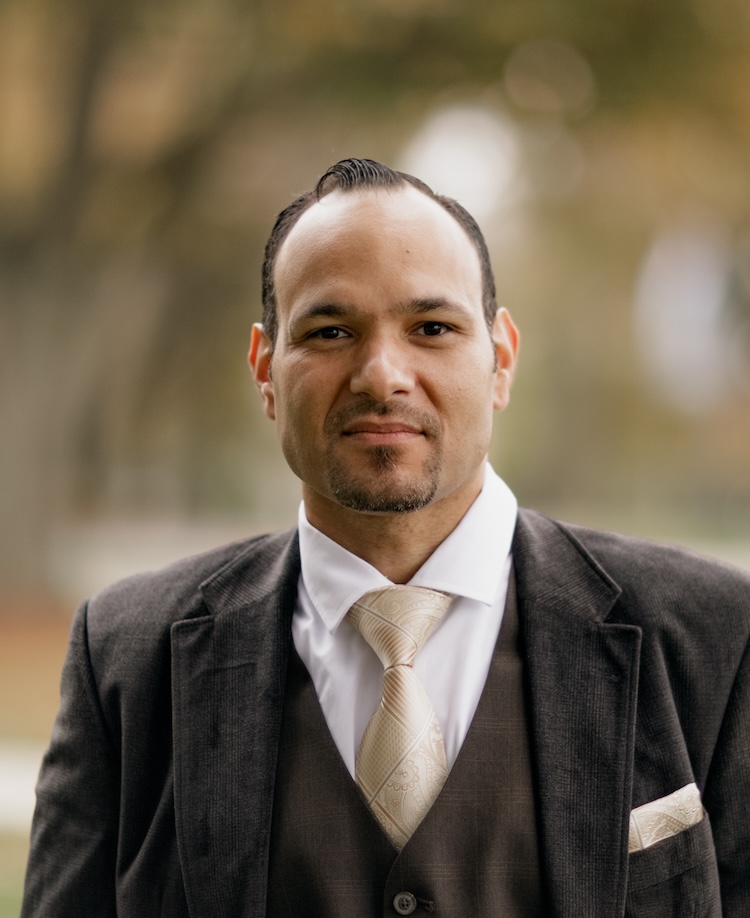
Dominick S. Hernández (PhD, Bar-Ilan University) is associate professor of Old Testament and Semitics at Talbot School of Theology, Biola University. He is the author of several books, including Proverbs: Pathways to Wisdom and Engaging the Old Testament: How to Read Biblical Narrative, Poetry, and Prophecy Well. Connect with him at domshernandez.com or on social media:
- Twitter/X: @Dom_S_Hernandez
- Instagram: @ElDrDominick
- Facebook: @DrDominickHernandez
- Youtube: @DrDominickSHernandez
This article originally appeared in IVP Academic's Excursus newsletter. Sign up for IVP's email list and select "academic books" to get more content like this straight to your inbox.
Discover more on Christian higher education and evangelical academia by exploring the resources below.
This piece is adapted from an address given at the Evangelical Theological Society's Ethnic Minority Networking Lunch, November 16, 2023, in San Antonio, Texas.





